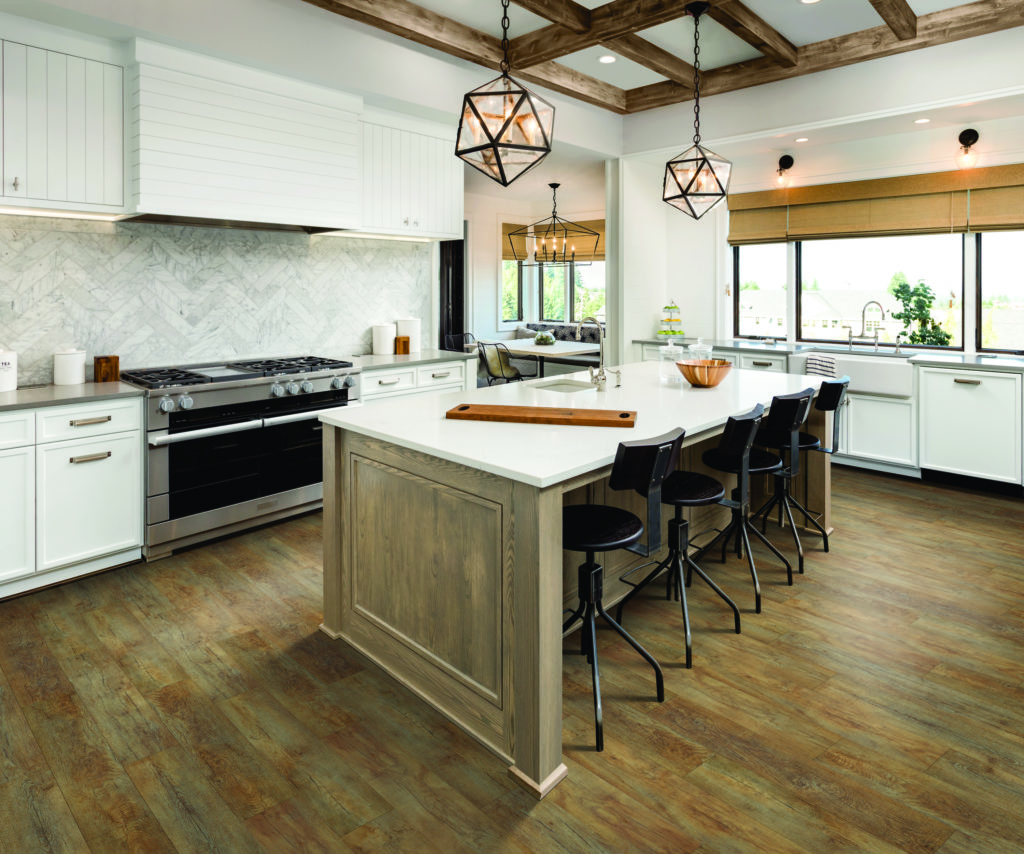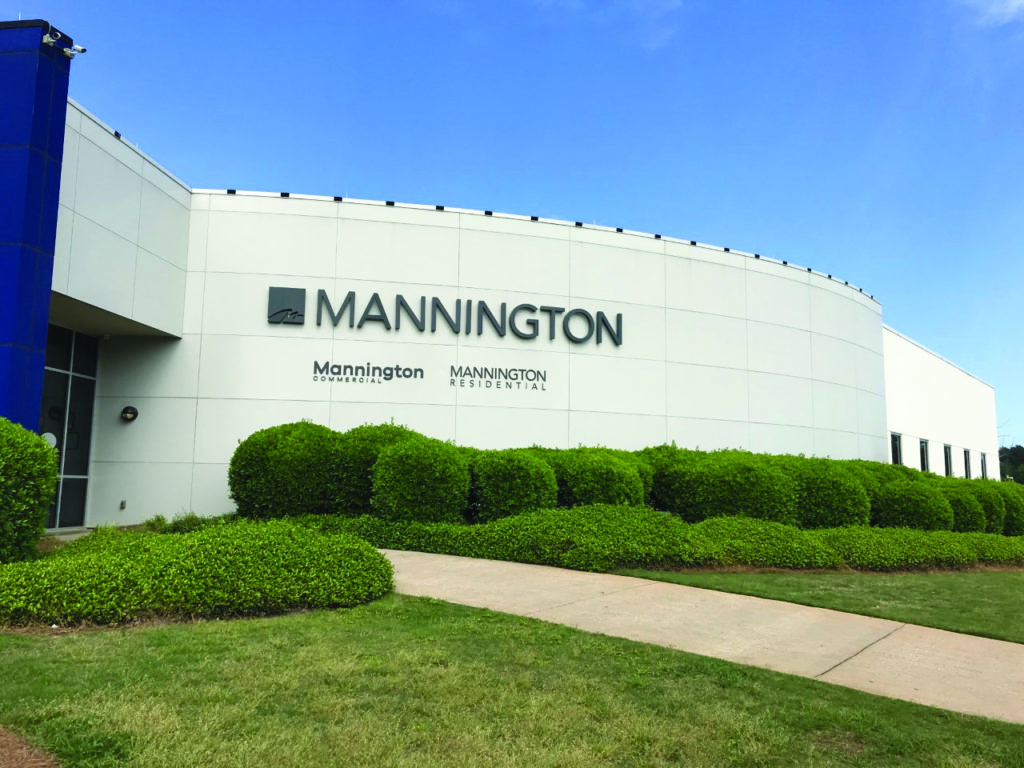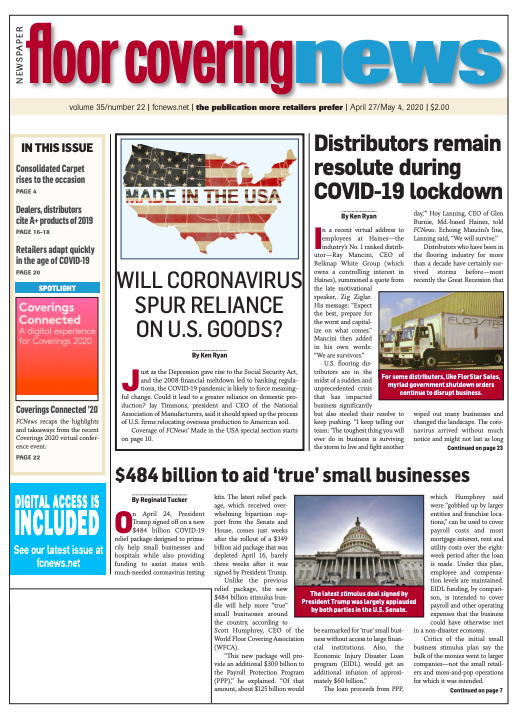By Ken Ryan

Business leaders and top U.S. officials from the president on down have speculated that major American businesses—from Apple to Google—may re-evaluate their reliance on Chinese supply chains and start to return manufacturing jobs to domestic shores.
Adding fuel to that notion, global manufacturing consulting firm Kearney released its seventh annual Reshoring Index in April, which shows a “dramatic reversal” of a five-year trend as domestic U.S. manufacturing in 2019 commanded a significantly greater share vs. 14 Asian exporters tracked in the study. The report found that manufacturing imports from China were the hardest hit.
Last year saw companies actively rethinking their supply chain, either convincing their Chinese partners to relocate to Southeast Asia to avoid tariffs, or by opting out of sourcing from China altogether. “Three decades ago, U.S. producers began manufacturing and sourcing in China for one reason: costs,” said Patrick Van den Bossche, Kearney partner and co-author of the 19-page report. “The trade war brought a second dimension more fully into the equation―risk―as tariffs and the threat of disrupted China imports prompted companies to weigh surety of supply more fully alongside costs. COVID-19 brings a third dimension more fully into the mix, and arguably to the fore: resilience―the ability to foresee and adapt to unforeseen systemic shocks.”
Major U.S. flooring mills including Mohawk, Shaw and Mannington continue to expand domestic production as they seek to control their destiny through vertical integration and supply change management.
Tariffs started the trend

Russell Grizzle, president and CEO of Mannington Mills, told FCNews the tariff issue has underscored the overall uncertainty and volatility in sourcing from China. “It’s very difficult to control total cost with such a long supply chain,” he said. “It also underscores the value of Mannington’s continued commitment to domestic manufacturing. We have excellent relationships with our suppliers, and we are always looking to increase our domestic manufacturing capabilities and capacities. This is evident in the investments we have made at our Georgia locations over the past few years, as well as our recent acquisition of Phenix Flooring and Pharr Fibers and Yarns.”
Grizzle said the trend toward more reliance on domestic production had already been under way before COVID-19; however, he said he believes this pandemic will accelerate that trend. “A number of factors come into play, including a more consistent and reliable supply chain, the ability to better service customers and the understanding that buying domestically made products helps create and sustain American jobs.”
Mohawk continued to operate during the coronavirus, and as the situation evolved it implemented temporary measures to adjust manufacturing volumes. “We are doing so in a way that minimizes the impact on our teams and customers as much as possible, while remaining committed to servicing and delivering on customer order requirements,” said Jeff Meadows, president of residential sales. “The company maintains a robust inventory in the U.S. and will continue to monitor inventory levels to ensure we can continue to meet our obligations, even in changing circumstances.”
Shaw said its manufacturing commitments remain the same, which is to produce as much as possible in close proximity to the markets it serves. This approach allows for greater service, efficiencies in operations and innovation that comes from locating manufacturing, design, engineering, product development, marketing teams and others in the same geography for even greater collaboration.
“Over the past five years, Shaw has invested more than $1.5 billion in our U.S. manufacturing operations—both hard and soft surface,” David Morgan, executive vice president of operations, told FCNews. Morgan said modernization continues at Shaw’s $250 million residential carpet fiber facility in Andalusia, Ala. Additionally, Shaw has completed the expansion of its carpet tile facility in Adairsville, Ga., which houses manufacturing, warehousing and recycling operations for Shaw’s commercial business.
Future investments will be dictated by market demand and opportunities for innovation post-COVID-19, Morgan said, adding, “It’s premature to effectively predict all the ways in which the COVID-19 pandemic may impact the way we meet our customers’ needs.”

